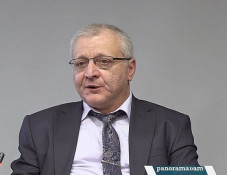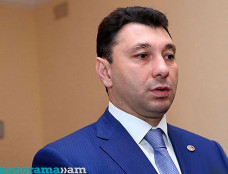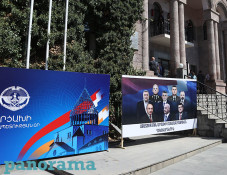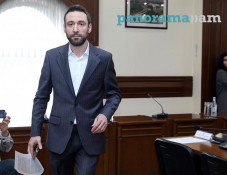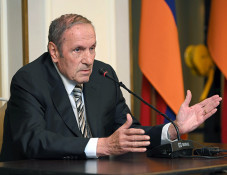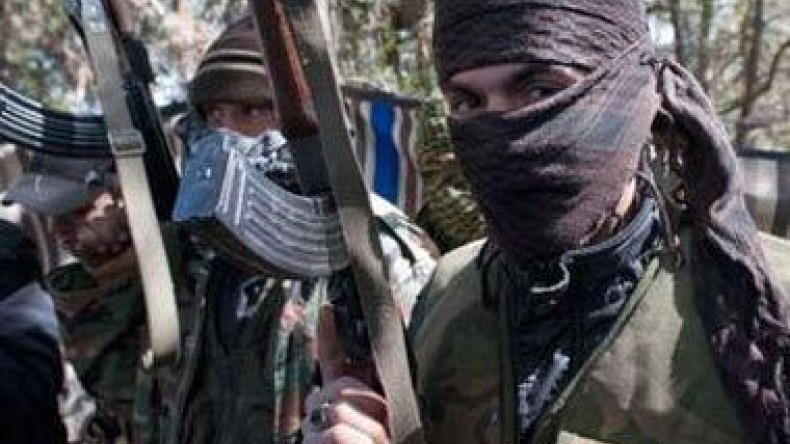
Yunus: About 400 to 450 Azerbaijani citizens are fighting now in Afghanistan, Pakistan, Iraq and Syria
Despite the declarations of tolerance in Azerbaijan, in fact, the situation is different, said in an interview with Objective TV the Head of the Conflicts Department of the Institute of Peace and Democracy, Arif Yunus, the Azerbaijani news agency Turan reports.
“Tolerance means tolerance of ideas, languages, cultures, religions, people or nations. But there is no such atmosphere in the country," Yunus noted.
The political scientist noted that problems are everywhere, and their solutions have two ways – through violence or through peace, tolerance and compromise. Problems exist in America and in Europe. In these societies, to address them people gather round the table and find a solution through dialogue. “In Azerbaijan there is no dialogue in the political, religious or other area. There is no dialogue of the government, the parties and civil society. There is no dialogue between believers and non-believers," continued Yunus.
“For example, they use the word Wahhabi although they call themselves Salafis and perceive the word Wahhabi as an insult. The media also use the term Wahhabi. Even the religious leaders do not refrain from such forms of addressing. Same is with Nursism. Of the 150 print materials about Nursism, only 20 are informative, others are in a violent manner. Sites close to the Sunnis and Shiites publish insults against each other. In parliament deputies are accused of Nursism. All of this is no tolerance," said Yunus.”
In his view, religious radicalism in Azerbaijan is only now beginning. 96% of Azerbaijan's population is Muslims. Of these, only 22% are believers.
As the expert noted, lately there were clashes between the currents. In various parts of the country there were incidents on this ground. If someone says that in the religious sphere everything is good, it is not so, the problem exists and is just in its infancy.
“The country faces a sort of forced radicalization. Religious leaders act on elections with political statements and violate the law. The government claims that it monitors the religious situation, but police record incidents religiously motivated and always lag to stop them. Efficiently suppressing opposition rallies, the police do not do the same thing during religious incidents. It seems the processes are managed," said Yunus.
He drew attention to another pattern: religious incidents occur when criticism from the West is amplified. "It seems the authorities demonstrate the presence of a religious threat to the West. At the same time, such incidents reinforce religious radicalism,” Yunus continues.
According to Yunus 400-450 Azerbaijani citizens are fighting now in Afghanistan, Pakistan, Iraq and Syria. They will return with military thinking, radical religious views and their impact on others may have negative consequences, said Yunus.
On Saturday in Azerbaijan, two incidents on religious grounds occurred – a Wahhabist was beaten in Sayuirabad who forcibly had his beard shaved off, and in Baku the Wahhabis attacked the mosque congregants.
Note that Azerbaijani Salafis or Wahhabis are fighting in the ranks of various terrorist groupings that operate in Syria, Afghanistan and Pakistan. According to the Azerbaijani news agency Vesti.az the total number of Azerbaijani terrorists in these countries equals to 300.
Whereas according to FaktHeber Azerbaijani portal over the past three years only in Syria almost 200 Azerbaijani terrorists were killed.
The relationship between international terrorist groups and Azerbaijan originated in the early 1990s. That time, the Azerbaijani army, having failed in the aggression against Nagorno-Karabakh Republic (NKR), retreated with losses. Trying to save the situation, the Azerbaijani leadership, headed by Heydar Aliyev attracted to the war against the Armenians of Nagorno-Karabakh international terrorists and members of radical groups from Afghanistan (groupings of Gulbuddin Hekmatyar), Turkey ("Grey Wolves", etc.), Chechnya (groupings Basayev and Raduyev etc.) and some other regions.
Despite the involvement in of thousands of foreign mercenaries and terrorists in the Azerbaijani army during the war, the Azerbaijani aggression against Nagorno-Karabakh Republic failed, and the Baku authorities were forced to sign an armistice with the NKR and Armenia. However, international terrorists found ties in Azerbaijan, and used them in the future. Recruitment was conducted among Azerbaijanis, who then were sent to Afghanistan and the North Caucasus, where participated in the battles against the forces of the international coalition and Russian organizations. In recent years, the citizens of Azerbaijan are actively involved in terrorist and extremist activities in Russia, Afghanistan and Syria.
Newsfeed
Videos








